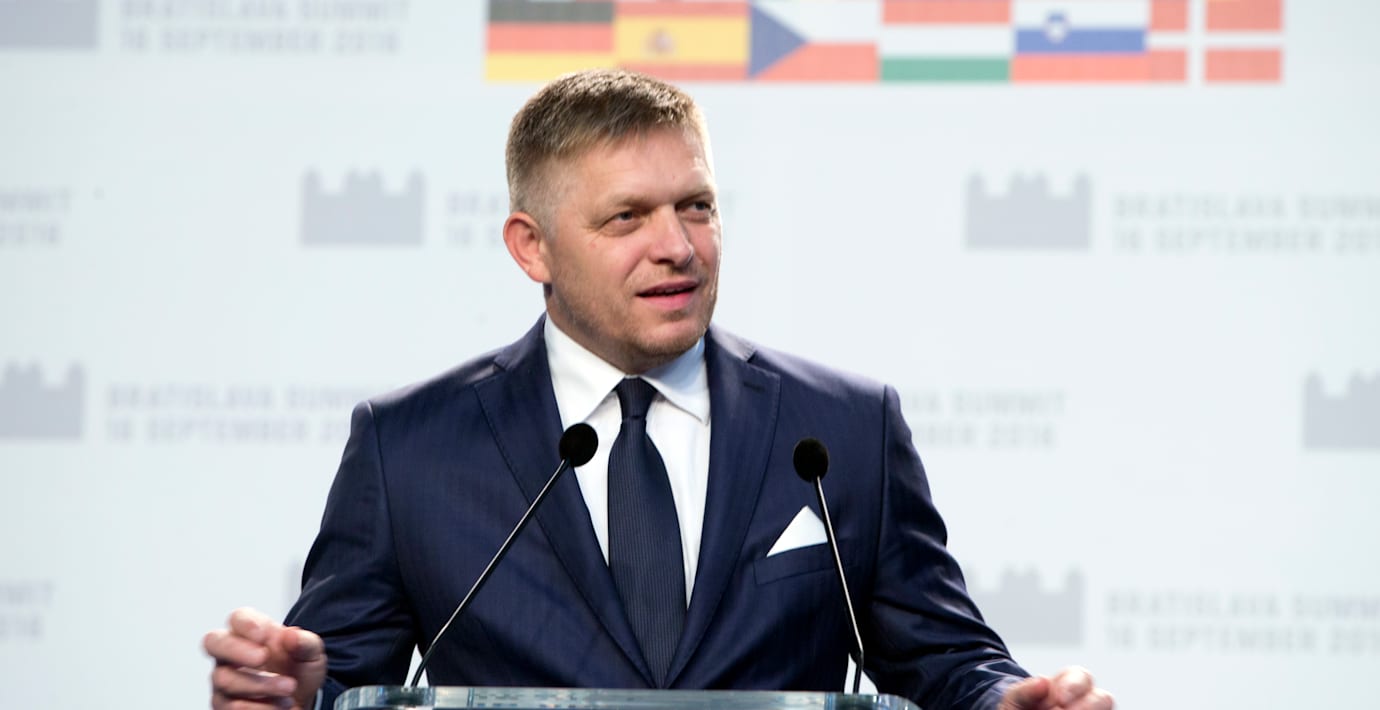
Slovakien: EU ska se till att brexit blir smärtsamt
Europa kommer att se till att Storbritanniens utträde ur EU bli mycket smärtsamt och att landet får det mycket sämre utanför unionen. Det säger Slovakiens premiärminister Robert Fico i en intervju med Financial Times efter helgens EU-toppmöte i Bratislava.
– EU kommer att ta tillfället i akt att visa allmänheten: ”Lyssna, nu kommer ni att se varför det är viktigt att stanna i EU”.
Det finns för närvarande över en miljon östeuropeiska arbetare i Storbritannien, något som blir en kärnfråga i förhandlingarna om landets utträde.
– Allt vi vill är att våra arbetare blir behandlade på samma sätt som de brittiska. Om det sker kan skilsmässan bli en succé. Men trots det kommer det bli smärtsamt för Storbritannien, säger Fico till tidningen.
bakgrund
Brexit
Wikipedia (en)
The United Kingdom (UK) intends to withdraw from the European Union (EU), a process commonly known as Brexit, as a result of a June 2016 referendum in which 51.9% voted to leave the EU. The separation process is complex, causing political and economic changes for the UK and other countries. As of September 2016, neither the timetable nor the terms for withdrawal have been established: in the meantime, the UK remains a full member of the European Union. The term "Brexit" is a portmanteau of the words "British" and "exit".
The possibility of withdrawal from the European Union has existed under Article 50 of the Treaty on European Union of EU member states since 2007. Article 50 which governs the withdrawal, however, has never been used before. The withdrawal must be in accordance with the Member State's constitutional requirements and uncertainty exists as to the constitutional requirements in the UK. Unless extensions are agreed to unanimously by the Council of Europe, the timing for leaving under the article is two years from when the UK gives official notice, but this official notice was not given immediately following the referendum in June 2016. The assumption is that during the two-year window new agreements will be negotiated, but there is no requirement that there be new agreements. Some aspects, such as trade agreements, may be made difficult to negotiate by the EU until after Britain has formally left the EU.
Withdrawal has been the goal of various individuals, advocacy groups, and political parties since the UK joined the European Economic Community (EEC), the predecessor of the EU, in 1973, though continued membership of the EEC and the Common Market was approved in a 1975 referendum by 67.2% of votes.
Omni är politiskt obundna och oberoende. Vi strävar efter att ge fler perspektiv på nyheterna. Har du frågor eller synpunkter kring vår rapportering? Kontakta redaktionen



